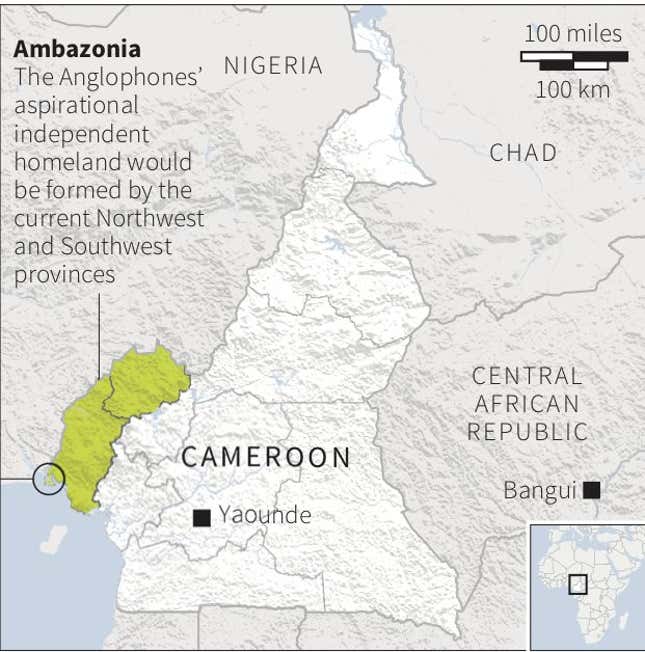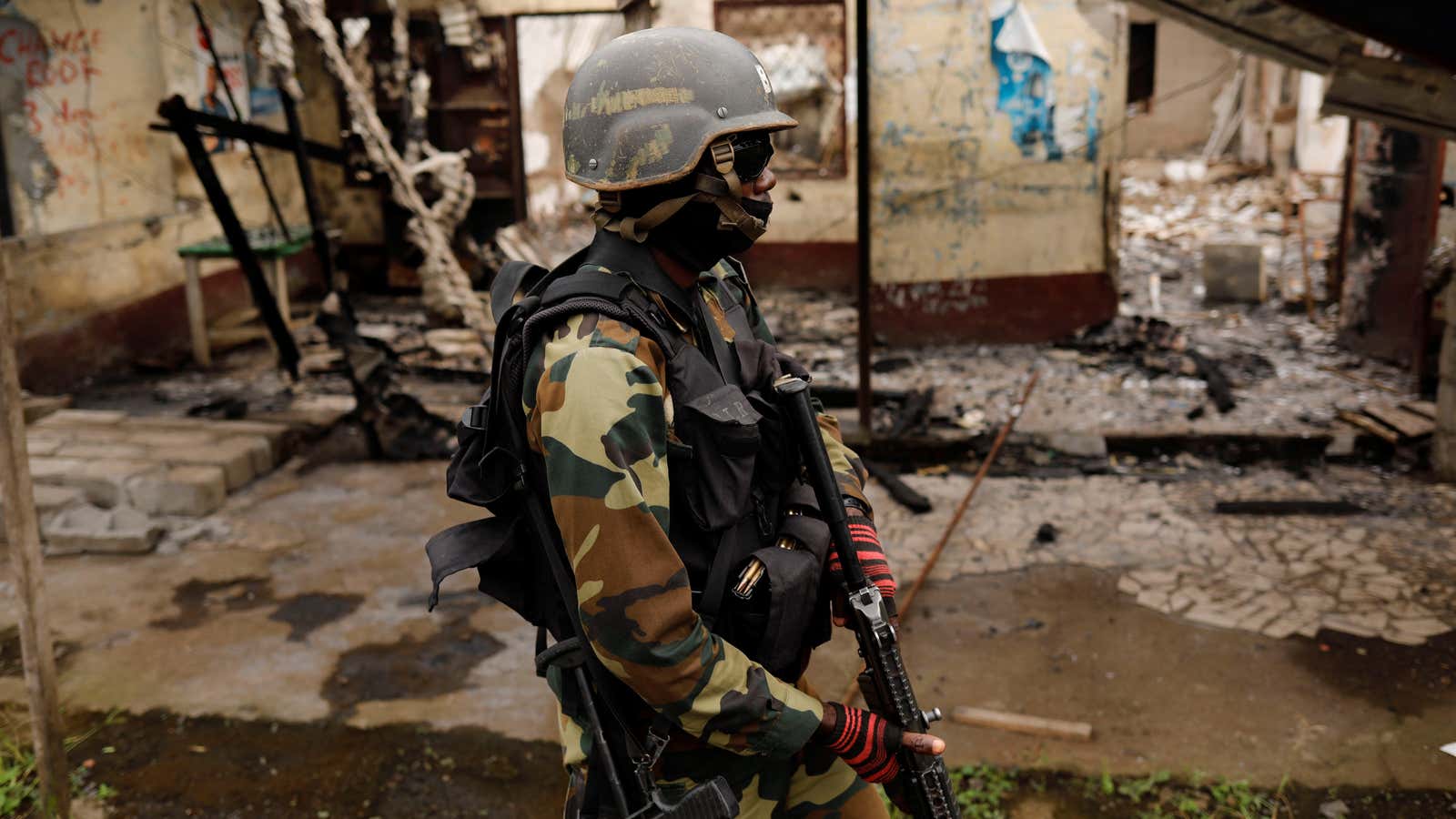Ten leaders of the most influential Anglophone separatist movement in Cameroon have been convicted.
Julius Ayuk Tabe, who bears the title “President of the Interim Government of the Federal Republic of Ambazonia (Southern Cameroons)” and nine others were each handed a life sentence on Aug. 20. The accused were also ordered to pay for damages amounting to over $422 million.
A military tribunal in the capital Yaoundé found them guilty of 10 principal charges including secession, hostility to the state, complicity in acts of terrorism, financing acts of terrorism, revolution, insurrection, propagation of false information, amongst others.
The verdict is subject to appeal within 10days. And the counsels of the imprisoned separatists have already indicated their intention to challenge the judgment. Should the appeal not get a favorable response, then the separatist leaders will have to spend the rest of their lives likely under difficult detention conditions in the country they have been fighting to secede from.
The English-speaking separatists have been seeking to carve out a new state from the majority French-speaking Cameroon and establish an independent country called Ambazonia. They symbolically declared independence on October 1, 2017. The movement’s leaders were arrested in neighboring Nigeria last year and taken into custody under circumstances marked by irregularities and controversies. At some point in time, rights groups reported that they were held incommunicado and denied access to their lawyers and families.
Critics see the latest crackdown on increasingly bold separatists as an action likely to frustrate effective school resumption (on Sept. 2) for the third consecutive year in the restive English-speaking regions. Armed separatists have announced a series of total lockdown in the North West and South West regions in September. The incarceration could also paly negatively for an envisaged inclusive dialogue at ending the drawn out conflict.

Cameroon’s Anglophone crisis began in October 2016 when English-speaking lawyers and teachers started objecting to the appointment of French-educated judges and teachers to their courts and schools. Government suppressed their dissent, provoking other frustrated groups to join in protesting against real and perceived marginalization against the country’s English-speaking regions.
The crisis soon spiraled into an armed conflict. Till date, over 500,000 people have been displaced according to independent monitors while local rights organizations say over 2,000 civilians, government and separatist fighters have been killed.
Sign up to the Quartz Africa Weekly Brief here for news and analysis on African business, tech and innovation in your inbox
